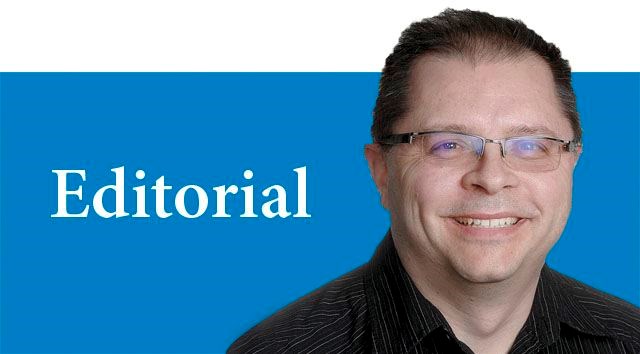Academics and journalists share the same passion for knowledge.
Yet sometimes those passions collide, which is why The Citizen had to file a Freedom of Information request to UNBC for the university to release its Presidential Task Force On Sexual Violence final report, upon which it based 13 recommendations to address the problem of sexual assault on campus.
When announcing the recommendations at the end of September, UNBC president Daniel Weeks told The Citizen that the university would not release the report of the task force that studied the matter for two years.
"This can be a very sensitive topic," he said. "Just the recommendations themselves can be somewhat disturbing to some individuals and we want to make sure we're sensitive to some of the language that's in these reports and making sure that individuals are comfortable with it."
The concern about harming the people who have already been sexually assaulted is real, but there is plenty of evidence to show that keeping these crimes quiet causes more damage than bringing them into the light.
Furthermore, these recommendations are not just for them, but for the entire UNBC community - including future victims of sexual assault.
Furthermore, what's missing from the report is data specific to UNBC.
Does UNBC have a problem with sexual assaults? How many sexual assaults have happened? Has UNBC responded properly or improperly in the past to reports of sexual misconduct?
What seems clear from the report is the task force decided to avoid these detailed and highly sensitive questions, favoring a more global assessment of the issue to inform recommendations designed to help UNBC, its staff and its students going forward. Put another way, the members of the task force decided they wanted to introduce policy towards a problem they had no way of really knowing was actually a problem at UNBC.
Due to the relatively small UNBC population, exploring this matter in detail at the local level comes with problematic issues of privacy and sample size.
For example, if two incidences involving students were reported in the residences at the main campus during 2014, many people might be able to associate the dates and locations with other information to piece together who the victim was. That's a legitimate concern but it's not a unique one nor is it impossible to accommodate. For example, UNBC's social work program provides its students with techniques on how to maintain confidentiality with clients in rural and isolated communities.
Meanwhile, sample size can be used to paint an inaccurate perception of an issue.
If there was just one reported incidence of sexual assault involving students at the UNBC residences in 2015, does that mean sexual violence has dropped by half?
Well, yes, but such a small sample can't support such a blanket statement.
It's an accurate, but dishonest, interpretation of the data.
Still, as academics know, a small sample size is better than none at all and other data and analysis can be incorporated to make findings more robust.
Not only does it seem the UNBC task force made no effort to work around the problems of privacy and small sample size, it appears the validity or the reliability of the local data they did have wasn't even questioned.
As UNBC information governance officer Adam Cullen wrote in his two-page letter to Citizen reporter Samantha Wright Allen, "the personal information is likely to be inaccurate or unreliable" because whether the incidences happened recently or many years ago and whether they happened on campus or away from the school was not determined.
What's left then is anecdotal evidence.
Again, researchers have been willing to work with such information (traditional ecological knowledge provided by indigenous populations to better understand environmental change is one example) but that data is used with other methods to provide a more rigorous analysis.
Neither academics nor journalists respond positively to "trust us, we know what's best" coming from the leadership of a public institution.
When that institution is also a university in the business of education and research to benefit everyone, it is their duty to release as much information as they possibly can in a responsible manner.
In this case, this only happened after The Citizen filed a Freedom of Information request to see what we were told we shouldn't see.
-- Managing editor Neil Godbout



